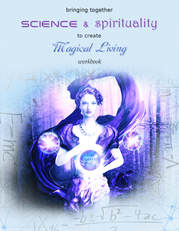"When you become the best version of yourself, you win without fighting."Hello, my beautiful friends!
As we are getting close to the end of 2023, many of us are choosing to reflect on the year to celebrate what we accomplished, to take away some wisdom from what we've learned, and to let go of not-so-pleasant experiences, in order to course-correct, and set new intentions for the new year that would lead to happier and more fulfilled lives. Since we can't be truly happy or fulfilled if we are not being our authentic selves, I invite you to take a few moments to reflect on these questions: 1. What would my authentic/true self do that I'm not doing yet or not doing enough? How can I change it in the new year? What is one thing I can do today that will demonstrate me being my true self? 2. What is one thing that I'm doing or doing too much/too often that either prevents me or makes it more difficult to be my authentic self? How can I stop doing it, or do it less? What can I do today to start? 3. Write a list of at least 3 new habits/skills/beliefs/attitudes you can work on next year to live and thrive as your authentic self. Which one are you going to start with today? Remember that growing into and becoming the best/truest version of ourselves is an ongoing journey, and we'll be encountering challenges and learning a lot along the way. I invite you to embrace those challenges as opportunities for growth and always practice self-compassion. Being our true selves is not about being perfect; it's about honoring who we are and loving ourselves as we evolve. The reason we choose to grow and change is not because something is wrong with us as we are, it's because we want to become all we can be. We do it out of love and not fear. We do it because we deserve it. We do it because the people we care about deserve it. To your truest, most authentic, outrageously successful, extraordinary, and genuinely fulfilled self! Happy New Year!
0 Comments
"Awakening is not changing who you are, but discarding who you are not." — Deepak Chopra Have you been experiencing strange shifts in your consciousness and wondering what's happening to you? What is often referred to as a “spiritual awakening,” can be both liberating and comforting but also confusing and at times frightening. While on their own each of these experiences can be due to other reasons, the combination of a number of them could indicate that you are going through a spiritual awakening. If you suspect that you might be going through this experience, here is a comprehensive list of questions you can ask yourself to find out if that’s the case.
"Spiritual awakening is the most essential thing in man’s life, and it is the sole purpose of being." — Khalil Gibran If you answered yes to the majority of these questions and recognize these signs of spiritual awakening within yourself then it's very likely that you're embarking on this path of transformation. It's essential to realize though that every individual's journey, while sharing similar universal themes, is deeply personal. Every experience, revelation, and challenge on your spiritual path is tailored to your soul's growth and evolution. This journey is a process that involves every aspect of a person and leads to a state of higher consciousness, discovering your true essence and cultivating your relationship with life, the Universe, the Source, or God.
If you wish to learn more, or have questions about awakening and the other stages of the spiritual journey, check out my website for more resources. And if would like guidance and support on your unique path, consider setting up a free consultation call where you can ask your questions. Having gone through most stages of the process on my own and intensely experienced all the struggles over the past 20 years, it wasn't until I discovered the right support that I truly recognized the importance and the transformative power of guidance on this sacred journey. For almost a decade now, I have been helping others on their path, providing knowledge, support, and a safe space in which they can learn, heal, transform, and evolve on their unique paths. You can also download this content as a PDF document. 3 Tips for Making this Holiday Season Truly Magical and Growing Spiritually in the Meantime!12/10/2022 For most of us, the holiday season is a special time of the year. We may celebrate the winter holidays for their religious meaning or use them as a chance to get together with our family and friends. While this time of the year can certainly bring us a lot of joy, it can also present us with some challenges. As somebody who sees life itself as a spiritual journey and uses life’s difficulties as opportunities to continuously evolve, I was reflecting on the possibilities for growth in this special time. While generally holidays are associated with celebration, fun, and joy, for many of us it can be very overwhelming. It can be a time of mental and emotional turmoil, relationship issues, and even physically demanding, especially if we are traveling. After observing people around me go into "preparation mode” as the holidays get closer and seeing their stress levels rise with all the pressures of this season, I felt inspired to share some simple strategies and quick practices we can all use to turn this time into a truly magical experience and grow both as humans and as spiritual beings in the meantime. Typically, in personal and spiritual growth, we consider difficulties as opportunities to become more self-aware and develop new skills and emotional resilience to become better versions of ourselves. It is certainly where most of our efforts are directed. On the other hand, positive or pleasant experiences are often enjoyed without much awareness and can be taken for granted. While, of course, the good things in our lives are to be enjoyed, I encourage you to take it a step further and remember to pause and feel deep gratitude for those moments of joy by recognizing their preciousness. We can make it a conscious practice. Genuine gratitude experienced with the whole body not only feels good, but it is a powerful antidote to anxiety and depression. Gratitude also helps us balance our innate negativity bias and allows us to live more in the anticipation of positive experiences. Tip #1: Use every opportunity to practice genuine gratitude and feel it in the body. Now let’s talk about some of the most common challenges we might encounter in the coming few weeks. Two of the biggest issues people struggle with during this time of the year are stress and feeling overwhelmed. Stress: Activities like shopping for the right gifts, traveling, and cooking the perfect holiday meals all can increase our stress levels. Not to mention, having to spend time with family members who, of course, know how to push our buttons and remind us just how “unenlightened” we still are! So, what can we do? We can practice self-compassion. When we get stressed, our inner critic becomes louder, and this can be a great opportunity to turn that obnoxious voice in our head into a voice of a kind and loving friend, parent, or mentor that is always on our side. The truth is that this voice wants us to be safe, successful, and happy and it will be much more helpful if it speaks to us in a kind and encouraging way. Self-compassion also means setting internal and external boundaries with others and ourselves. For example, in relationships, setting internal boundaries would mean being aware and firm about our needs and what we will or will not tolerate in our relationships. External boundaries are about communicating these with other people in a kind and caring way. Setting internal boundaries may also mean not having that extra slice of cake or another glass of wine. But still, enjoy ourselves! Remember that other people treat us the way we treat ourselves in their presence. Tip #2: Practice self-compassion, be kind to yourselves, and set healthy internal and external boundaries. Feeling Overwhelmed: This is often a result of stress and can make us feel out of control. If you are feeling overwhelmed, here is a simple exercise you can do. Write down all the things your mind says you need to do. Put that list aside, meditate or use another practice to clear your mind and connect with your heart's wisdom or your Higher Self. Then while holding your left hand on your heart, go over the list again and pay attention to how each item on the list feels inside your body. Trust your intuition. Feel the deeper desire underneath the surface and think about why you feel the need to do each task. You might find that some of the items on the list are not nearly as important as they seemed to be at first. You may find you can remove some of them from the list entirely, delegate some, or add them to your calendar to do later. Tip #3: Don’t simply believe what your mind says. Connect with your heart’s wisdom and understand the real “why” behind what you do. This will help you eliminate what’s unimportant and allow you to be more present for those things that are truly meaningful. Of course, you might be dealing with many other challenges at this time, which may or may not be related to the holidays. These could be struggles with health, finances, work, or relationships. While there could be many solutions to these concerns, I do suggest you practice the three tips shared above for those as well because gratitude, self-compassion, and remembering what matters will have a powerful and positive impact on every area of your life. Let's enjoy the holidays and grow in the meantime! Whether you are celebrating a traditional Thanksgiving or adding a spiritual twist to it like me and are making it simply about being grateful, today is the day we think about gratitude more than any other day.
We typically think of gratitude as a pleasant emotion that we experience when we receive something desired, or we think of someone or something in our lives that we appreciate. But gratitude experienced intentionally is a powerful spiritual practice. While more and more people are becoming aware of its value and use a gratitude journal or other ways of practicing it, I'm realizing through my work with clients that in most cases their practice lacks the most crucial ingredient. The actual feeling of gratitude in the body. And without the feeling, this becomes an intellectual process. In other words, we are "thinking" gratitude rather than feeling it, and therefore missing the true transformative power of this state of being. Yes, it is a state of being, it transforms us mentally, emotionally, physiologically, and energetically. If practiced consistently, it can change our predominant state of being, which for most of us is a state of worry or various degrees of anxiety. The "negativity bias" or focusing on the negative and anticipating something bad and preparing for it is how we are wired as humans. But by developing our "gratitude muscle," we can shift it into a more balanced view of life and begin to expect good things to happen much more often. Gratitude also aligns us with the things we desire and therefore we bring them into reality much more quickly and easily. If you feel like you don't have much to be grateful for because of what might be happening in your life or around you, I would invite you to question that experience. Remember that our brain evolved to pay a lot more attention to the negative than the positive, about a 5 to 1 ratio. Especially when we are going through some challenges, our mind hyper-focuses on the negatives in our lives and takes the positives for granted, often not even noticing them. So if you haven't been practicing gratitude intentionally, or have been inconsistent with it, today could be the perfect day to start, or make it more consistent or take it even deeper. So how do we practice it? First, we want to learn how gratitude feels in the body. For this, we want to do a quick experiment. It's better to do it when you are not distracted. ~ Close your eyes and bring to mind something or someone you are genuinely grateful for. You feel blessed to have this person, pet, object, experience, etc. in your life. Stay with it for a few moments and pay close attention to how it feels in your body. You can open your eyes. ~ Now for contrast, close your eyes again and imagine someone or something that upsets you (pick something moderate, not overwhelming). And pay attention to how that feels in the body. Notice how different it is from the first experience. Open your eyes. ~ And one more time, repeat what you did the first time with a feeling of gratitude. By now it should be fairly easy for you to identify the energetic frequency of gratitude. Remember that feeling. And if you stay with it a little longer, it will change your state of being. How can you integrate this practice into your day and develop your gratitude muscle? We want to turn it into a habit that over time is not going to require any conscious effort. You can use your gratitude journal if you like and simply feel it with everything you write down in it. It's better to write a few things and feel deep gratitude than make a big list and do it in the head only. To practice it throughout the day, it might be helpful to set some reminders, to begin with. The secret is that we don't need to wait for something wonderful to happen to feel grateful. We can train that muscle by experiencing gratitude for little things like getting a green light when we are rushing to get somewhere, hearing a piece of good news, no matter how small, having a pleasant interaction with a coworker or a family member, etc. And the more we vibrate at this frequency, the more and greater reasons we will attract to feel even more grateful. So how can you start practicing more gratitude today? A limiting belief is created when we give an inaccurate meaning to a negative experience we had and begin to perceive life through the lens of that conclusion. Most of our negative beliefs begin forming when we are too young and unaware to understand what is happening.
For example, if as a child we ask our parents to play with us and we repeatedly hear that they have too much work to do and have no time, we may begin to feel that we are not important enough. When someone in school we like doesn’t want to be friends with us, we may reaffirm this thought that we are not good enough for someone to want to spend time with us. And later, if we decide to ask a girl out and she says no, now we probably have developed a belief that we are not worthy or likable. And we will begin to anticipate our future experiences to be like the ones we had in the past. Expecting to be rejected, in this case. And we may even stop taking chances because rejection hurts. And, of course, no one wants to be hurt. Growing up, we may develop limiting beliefs about any aspect of our life. And unless these distorted perceptions are brought to light, analyzed, and transformed, they will continue to limit the choices we make, the opportunities we recognize and act on, and the results we achieve. You would probably agree now that it is really important to know what our limiting beliefs are and how we can transform them into empowering beliefs instead. But why so few people do it? Here are the 4 key reasons why. Reason #1: It is not easy to see our “blind spots.” Because the thinking process that is supposed to help us recognize these beliefs is distorted by the same beliefs. (This is where the support from a coach can make the difference between making a breakthrough or staying stuck.) Reason #2: These beliefs were originally created by our subconscious mind to protect us from being hurt or even harmed in the future. Therefore, they are closely linked to our survival mechanism. Our subconscious mind takes it very seriously. Even though we understand with our rational mind that getting rejected by a potential mate is not a threat to our life, the subconscious mind may actually perceive it that way. So, we need to recognize this fallacy. When we feel safe, we can proceed. Reason #3: We typically try to make changes to our perception, thinking, and behavior with our conscious mind. How else can we do it? The problem is that our conscious mind is only controlling 5% of our choices, the rest is hardwired into our subconscious mind, including our deeply held limiting beliefs. Thus we must change our subconscious mind. But how? The simple answer - through our emotions. Reason #4: Our subconscious mind is our body. Every thought we think is being translated biochemically into an emotion or a feeling. And just like the mind remembers the thoughts as memories, the body remembers experiences as feelings. So, if you had a bad experience (rejection, betrayal, physical pain, etc…) and the brain memorized the event, the body memorized the emotion associated with that event. Therefore, our emotions are the key to our transformation. To replace a limiting belief (with its associated emotion) with a new liberating and empowering belief, we need to generate a stronger emotion that is positive and uplifting. By repeatedly thinking new inspiring and empowering thoughts and feeling the corresponding feelings we can rewire our brain and energetically and biochemically change our body. It is like installing a new operating system. Over time, this new way of thinking, feeling, acting, and being will become the default, and we will become a new person. We will become someone for whom creating the life we always wanted would be natural and easy. Here are 10 powerful questions that will help you to begin uncovering these hidden beliefs. Please take your time to answer these questions and be completely honest with yourself. 1 What is it that you want to have or do but something is stopping you? 2 What is it that is REALLY holding you back from doing or getting what you want? 3 This is a problem because? 4 And this means? (You may want to ask this question several times to discover all the meanings you give to this.) 5 What is it that you must believe to make this problem even exist? 6 What is it that you believe about YOURSELF that has made this a problem? 7 What do you believe about the WORLD that has made this a problem? 8 About what time in your life did you decide that this was a problem? 9 What will overcoming this problem mean to you? 10 What will life be like when you no longer have this problem? If you would like support with getting crystal clear on all the ways you limit your success and self-expression and transform these limitations into your superpowers, consider booking a free consultation call. There are no obligations with this call. My greatest passion is to support you in transcending your past and transforming into your True Self. I work in many disciplines, combining profound mystical wisdom with advanced findings in neuroscience and physics to help you reconnect with and live from your Greatness, fully express your Magnificence and create a deeply satisfying life of peace, joy, harmony, love, and abundance, while fulfilling your destiny. I offer many powerful tools and proven methods for profound transformation and continuous evolution. I base my work on the extensive knowledge gained over almost two decades; my own experience of overcoming severe depression, anxiety, panic attacks, numerous limiting beliefs and self-defeating behaviors; and successfully helping my clients over years to transcend, transform and thrive as their True Selves. “Intuition is the whisper of the Soul.” ~ Jiddu Krishnamurti Our intuition is one of our mental and spiritual faculties that connects us to infinite Universal Intelligence. Mary Morrissey, a well-known author, and teacher describes intuition as our non-linear intelligence system. It has access to knowledge, she says, that could not be known through the logical and rational mind. It is often called our sixth sense. This still small voice is never fearful or anxious, but calm and all-knowing. One way to distinguish it from the other voices – that can sound like us but, in reality, are the voices of our mother or father, or someone whose opinion matters to us – is that there is never a trace of fear in it.
And Shakti Gawain, a New Age author and philosopher, said: “There is a universal intelligent life force that exists within everyone and everything. It resides within each one of us as deep wisdom, an inner knowing. We can access this wonderful source of knowledge and wisdom through our intuition, an inner sense that tells us what feels right and true for us at any given moment.” This is the same intelligence that is responsible for all creation, the consciousness underlying all existence. Its greatest “desire” is to continuously create and express itself through infinite forms. Therefore, it is always “working” toward expansion and fuller expression. Through our intuition, we can access this infinite intelligence, align ourselves with the direction of its evolving nature which knows what choice will be the most expansive and beneficial for us at any time in order to succeed in fulfilling our desires. Because, ultimately, our desires are the desires of the Greater Mind expressed and experienced through and as us. Although we are all born with a natural gift of intuition, we can strengthen our “intuition muscle” further with certain practices. Here are some suggestions on how we can do it: 1. Learn to recognize the voice of your intuition. One way to distinguish it from other voices is that it always speaks from love and never from fear. If there is any feeling of anxiety or criticism in it, this is not your intuition speaking. 2. The “still small voice” of our intuition is quiet and can be easily ignored. Take the time in your day to slow down and pay attention to it. It is always talking to you. The more you listen to it, the louder it will begin to speak. 3. Pay attention to the subtle feelings in your body. Although intuition may speak to you as thoughts, images, or a voice, there is typically a sensation associated with it in your body. It is often referred to as the “gut feeling” because you feel it in your gut, which has his own “brain.” This “gut-brain” is what the scientists call the enteric nervous system or ENS. It consists of 100 million nerve cells lining our gastrointestinal tract. 4. Connect to your intuition in meditation. When we quiet the chatter in mind, it becomes much easier to hear the voice of our inner wisdom. 5. The best way to build our intuition muscle is to trust our hunches and act on them. When we see the benefits of following this voice, we will do it more confidently the next time. Soon, we will begin consulting our intuition before we make any important decisions. 6. Ask yourself a question and pay attention to the very first feeling. Try not to think for a few seconds. Tune into your body. How does it feel? Does it feel contracted? Or do you feel a pleasant sensation? Be attentive, these sensations can be very subtle. A good question to ask yourself is: “Is this mine to do?” The intuitive answer could be a clear “yes” or a clear “no.” If the answer is unclear, ask yourself, “Is this mine to do now?” Sometimes we know that it is the right thing to do but now is not the right time. 7. And finally, use journaling to improve your communication with your subconscious and superconscious minds. It also helps us to capture our great creative ideas and insights. As a result, we will have more of them. Creativity is one of intuition’s favorite languages. Our heart is another great portal to our inner wisdom. You can learn more about the wisdom of the heart and how to access it here. We may believe that our brain is our control center and imagine ourselves residing in our head and looking at the world through our eyes. Yet whenever we point to ourselves, we don’t point to our head; we point to our heart. Why is that? Is it possible that our heart is not just an organ that pumps blood through the body as many tend to believe but actually is the seat of our soul as the mystics call it?
Some traditions believe that it is actually the heart that connects the physical aspect of ourselves to our spiritual essence. For example, in the seven chakra model, the heart chakra, Anahata is considered the bridge between the three lower chakras of our physical manifestation and the three higher chakras of our spiritual dimension, and therefore our source of intuition and our access point to the Universal Intelligence. But this is far from being just a mystical concept. The HeartMath Institute in Northern California has been researching the heart and the heart-mind connection for over twenty-five years. They made some profound discoveries, the most important of which is the state of heart coherence and its incredible benefits. Psycho-physiological coherence or simply heart coherence is a state of synchronization of our heart, mind, emotions, and the nervous system. It is achieved by rhythmic breathing and focusing on positive emotions like gratitude, love, and compassion. It is important to note that the state of heart coherence is not just a state of relaxation. It can include relaxation, but its distinctive feature is the entrainment between the heart and the brain, which creates a level of global organization in the body that the state of relaxation alone does not. This is the optimal state that allows us to tap into the wisdom of our heart to receive answers, guidance, and connect with others in the most profound way. Doc Childre, the founder of HeartMath Institute, describes it as “the flow of higher awareness, wisdom, and intuition we experience when the mind and emotions are brought into synchronistic alignment with the heart.” Here are some facts about the heart that will help us better understand its role:
It is this state that many meditation techniques are trying to achieve, without even knowing it. Being in the state of heart coherence not only creates a resonance between our heart and mind but also between people. The science behind it may explain why mass meditation and group prayer with a specific intention can be so powerful. Negative emotions, such as fear, anxiety, frustration, anger, impatience, etc. cause incoherence in our heart, which over time can lead to mental, emotional and physical health problems. Practicing the state of heart coherence consistently even for 5-10 minutes a day is shown to reverse the effects of mental and emotional problems and increase longevity, resilience, cognitive flexibility, memory, immune function, intuition, happiness; improve problem-solving, job performance and achievement. Here is a simple technique to create a state of heart coherence:
Our heart is much more than just a pump. It has the wisdom to guide us through our every challenge and the power to create a life of love, authenticity and true happiness. So, I invite you to stay coherent and listen to your heart – it knows the way. References: Daniel Amen, M.D., Doc Childre, Deborah Rozman, Ph.D., Rollin McCraty, Ph.D. HeartMath Brain Fitness Program: Connecting Heart and Mind for Optimal Performance. Doc Childre, Howard Martin, Deborah Rozman, Ph.D., Rollin McCraty, Ph.D. Heart Intelligence: Connecting with the Intuitive Guidance of the Heart. Introduction"There are two mistakes one can make along the road to Truth – not going all the way, and not starting." ~ Buddha When I discovered the Law of Attraction back in 2006, I was thrilled. This mystical “law” promised to make all my dreams come true if I only learned how to use it. Excited about the possibilities, I started studying it, even though I was a little skeptical. It seemed too simple, too good to be true. But I really wanted it to work, as I was struggling with many personal challenges at the time.
My newly acquired knowledge was soon put into practice and tested in the laboratory of my life. Increased confidence and a more positive outlook on life came to me very quickly, and I felt happier than I did in a long time, anticipating all my desires to manifest with little effort on my part. And although I was able to achieve some positive results, shortly after I encountered a huge disappointment. I found myself facing one of the most significant “problems” I ever experienced, and I just couldn’t take responsibility for its creation. It made no sense. This should not have happened according to what I’ve learned, or at least, according to the way I understood it. My skeptical mind started questioning this “law” and doubting everything I have ever read or heard on the subject. Soon, my newly established belief system crumbled under the weight of harsh “facts,” as it was not grounded in the Truth – as I learned later – and my understanding of how Reality worked was somewhat superficial. I felt betrayed by God, The Cosmic Mind, The Universe. Since I had no support on this matter at that early stage of my journey, I fell into the Dark Night of the Soul, hopeless and confused. This lasted five extremely challenging years. But it was this pain of utter despair that forced me to look deeper for answers. I turned to meditation and mindfulness. From Buddhist teachers I learned to surrender; from Eckhart Tolle, I learned to live in the NOW. While these gave me some comfort over the next few years, I never felt truly satisfied, as I knew I wasn’t actively participating in the unfoldment of my destiny and hence not being true to myself. I knew deep in my heart that I was a powerful creator and yet my earlier disappointment and my natural skepticism made me wary of any teaching about manifestation. I wanted to know the Truth. In fact, I had to know it. So, I started to explore once again. Having no mentor, I trusted my intuition to guide me through the maze of information sources. I read any book and listened to any teacher that potentially could offer the key to uncovering the mysteries of existence. I explored psychology, meditation, energy healing, psi phenomena and alternative sources of information on history, extraterrestrial civilizations, “conspiracy theories,” and many other subjects. I also became interested in cutting-edge science and the discoveries it made that could shine light on the true nature of Reality. Having grown up in a family with primarily atheistic views, where science was trusted to provide the answers, this was important to satisfy my inner skeptic. After studying several Unified Physics models (physics that combine Quantum Field Theory and Theory of Relativity) for several years, while simultaneously reading books on Mental Science and New Thought philosophy that inner skeptic was permanently silenced. I was amazed yet not surprised to realize that these two seemingly opposing methods of inquiry were describing exactly the same Intelligent Universe. This was not a coincidence. It was the Truth – the Truth about Reality. I finally started finding my answers; one by one all the pieces of the puzzle were falling into their places, and they fit together perfectly! And when I not only understood but embodied this knowledge and started to live from it every day by applying the powerful tools for transformation (discussed in this book), things began to change in unimaginable ways. But I knew that what was happening was not only possible but perfectly normal once we understood the nature of Reality and the power of our subconscious mind. My life in all its expressions began to unfold in the most beautiful ways. I have no other words to describe this experience but Real Magic. This is what I’ve learned from my experience – we are all magicians, and our subconscious mind is our magic wand. In this book we will see how understanding the Universal principles of creation and learning how to masterfully apply them in our daily affairs will enable us to create Real Magic. Real Magic is our natural superhuman ability to manifest miracles in our lives by the virtue of using our innate creative power that is locked in our subconscious mind – our share of the Universal Mind. Uncovering the secrets of the Universe can be a daunting task. In an effort to simplify this endeavor I divided this work into three parts. In Part One we will look at why and how Real Magic works. For this, we will have to dive deeper into the structure and dynamics of spacetime and learn how the mystical activity of the Spirit gives birth to the material Universe and everything in it. We will see how different mystics, philosophers and scientists described the same One Mind, Infinite Intelligence, or God, despite the different verbiage they used. We will discover the answers to questions: What is Reality made of? How is everything connected? Did life appear as a result of random events or was it intelligently created? What is our place as humans in the Universe, and do we create our reality? I will juxtapose ideas from the greatest mental and spiritual scientists and most recent findings in unified physics, to show how the same phenomena can be viewed from different perspectives, with both being accurate and valuable. In Part Two we will learn powerful ways to implement this understanding in our daily activities to live in alignment with the Absolute Truth and the Universal principles of creation and expansion. We will reveal the hidden powers of our subconscious mind and see how it is our most important manifestation tool. I will provide practical techniques discovered and developed by experts in the fields of spiritual and personal development, that anyone can use to start creating their own Magical Life today. In Part Three explanations will be offered for the reasons why this Magic may not appear to work sometimes and how we can avoid getting in our own way to success. The Universal Law is an unfailing law. The ability to use this Law is often considered a supernatural power, yet when we truly grasp the way it works, we realize this is the most natural way to be in life. Are you ready to create some Real Magic? Get the full book here: The Art & Science of Real Magic This is Part II of this article. You can read Part I here.
One more common way we may appear to invite bad things into our life is by stating who we want to become while having no idea what kind of a path we will have to travel to get there. Deep in our heart, we all want to grow and evolve - it is our nature as an incarnation of this ever-expanding Life. While we all may wish for our paths to be smooth and easy, there is no learning and hence no growing without challenges. Only in retrospect, looking at our journey, it becomes clear to us that each difficulty we resisted so much at the time was the perfect stepping stone that brought us where we were meant to be. And lastly, we unconsciously invite bad things by not choosing otherwise. Even before we were born, some things were set in motion for us by our karma and possibly choices made before this incarnation (according to some teachings), our ancestors, our genes, our environment, etc. Life is infinitely complex, and no one knows what kind of events had happened and what decisions have been made in the past that created a chain of reactions whose inertia continues to affect us today. All of these as well as the people and circumstances in our lives continue to influence us. And if we are not using our creative power consciously and deliberately, we may become victims of these "forces" by default. But again, we have the power to choose our thoughts, our feelings, and actions NOW and by doing so, we are laying a new path for ourselves, one conscious step at a time. This may or may not protect us from every adverse event, and some things that were “meant to happen” will still happen but living consciously certainly will allow us to create the best possible life we can have. I like to call it "living to the extent of our free will." The purpose of life is not just seeking the pleasant and avoiding the unpleasant experiences but growing and evolving into more and more of who we are by going through these experiences, both good and bad. All our desires, conscious or unconscious is the Universal desire to express more life. Yet we have the “free will” to use our individual creative power in a distorted and limited way with adverse consequences and suffer or thrive by expressing our full potential as the one-of-a-kind manifestation of this Magnificent Dance of Life. When we connect to the Universal Omniscience that speaks to us through our intuition and take conscious, inspired actions, we inevitably become the Masterpiece we were meant to be. Perhaps one of the most common and difficult questions metaphysical teachers are asked is: If God is love then why do bad things happen to good people? Does God care, or even, is there God? This is certainly one of the main subjects of metaphysical studies, but to attempt to answer these questions, we will have to look deep into the nature of God, Creation, and Existence. While it is a worthwhile exploration, and I’d love to share more about it in one of my upcoming articles, here I would like to explain some of the ways we attract these “bad things” into our lives, and what we can do to change it. Ernest Holmes, the founder of the New Thought philosophy, calls it “unconsciously inviting” accidents, illness, and all kinds of adverse experiences. One of the ways we do it is by repeatedly imagining a situation unfolding in a way we don’t want it to in order to be prepared for it. So, in efforts to save ourselves from an undesirable experience, we allow this scenario to play on our mental screen, evoking strong negative feelings. This, of course, is happening unintentionally and unconsciously, but as a result, we often end up creating exactly what we were trying to avoid! Although it can be useful to be prepared for things not going the way we want them to, we also need to remember that we are powerful creative beings and the images we play in our mind with strong emotions associated with them tend to manifest into reality. The reason for it is that our subconscious mind does not discriminate between good and bad thoughts. It is a creative medium through which our desires, intentions, and deep-seated beliefs come to life. In Metaphysical literature, this medium is often described by using the analogy of the soil. Just like the soil does not refuse any seeds and will grow whatever we plant, so will our subconscious mind materialize any thoughts we allow to take root in it. It will bring into life happy as well as unhappy events just as the soil will bring into life a delicious rose or a poison oak equally. So, it is our responsibility to be conscious of the atmosphere of our innermost world. The emotions evoked by habitual thoughts and images that flow through our being determine the default frequency of our energy, which will attract experiences of the same frequency. This is known as the Law of Attraction. Another way we unconsciously invite bad things into our life is by unconsciously trying to avoid something that deep in our mind we may consider threatening to our survival. On the conscious level, this threat may not make sense or even seem absurd, but our subconscious mind or our old brain processes things differently when it comes to performing its most important job - maintaining our survival. For example, if we are to give a public presentation, something we may find terrifying, even if in the case of failure, the only thing that will be in danger is our self-esteem and certainly not our life, our subconscious mind can be interpreting it as a threat to our survival and make us sick or get into an accident in order to prevent us from the possibility of being publicly humiliated. In this case, we want to be aware of all the underlying fears and take care of them, either by releasing or embracing them before we take the actions, so we don't inadvertently cause ourselves unnecessary suffering. Continue reading... |
Diana Vehuni, Ph.D., is a certified spiritual and holistic life coach, mindfulness meditation teacher, and an artist. She brings together perennial mystical wisdom and cutting-edge scientific knowledge to facilitate profound transformation in her students and clients. Archives
December 2023
Categories |
|
|


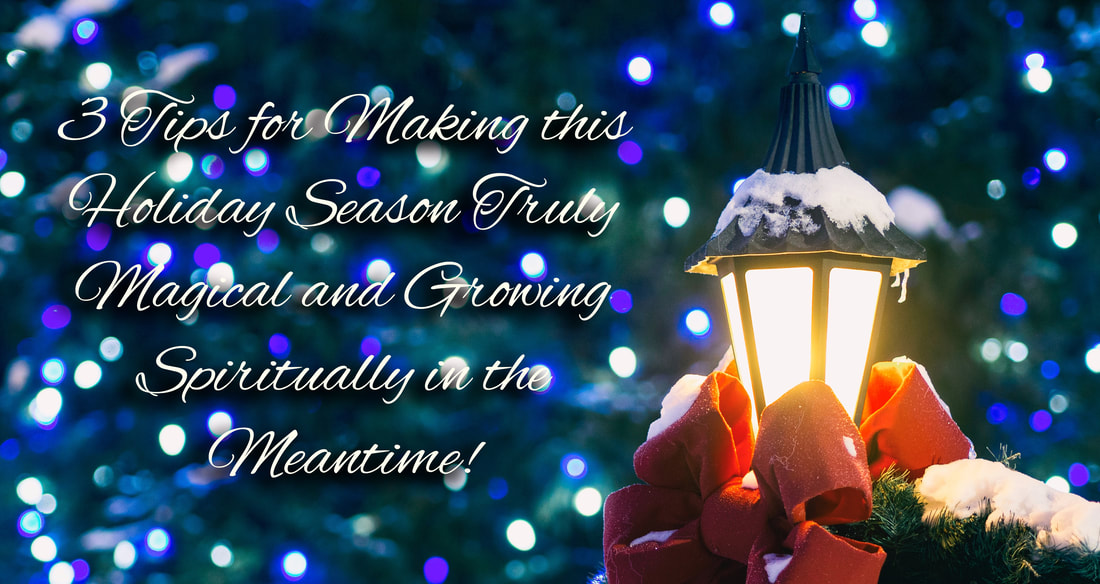
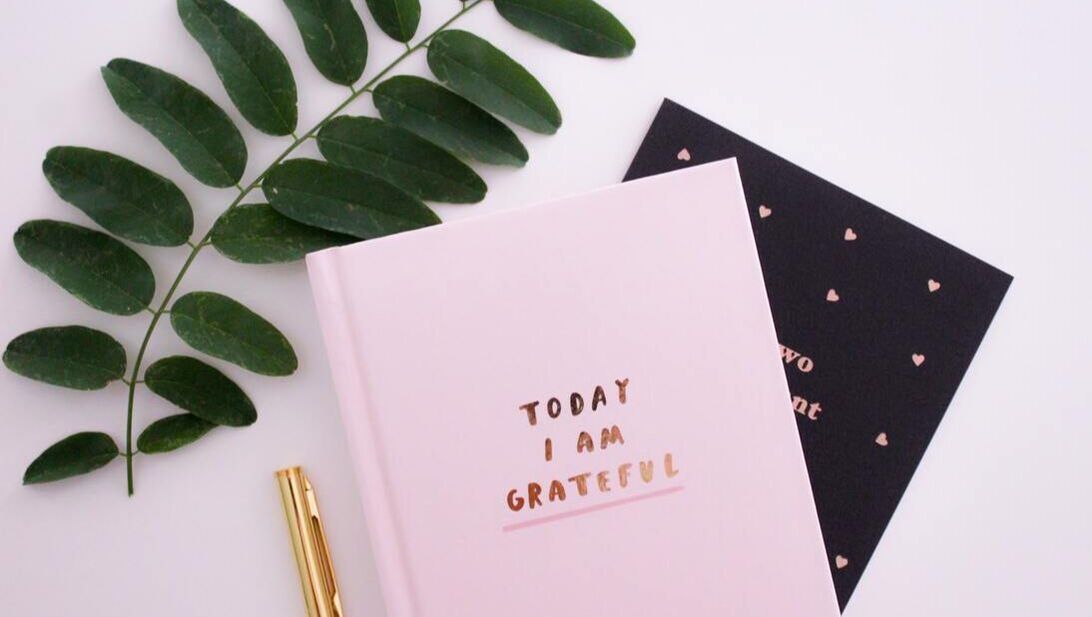
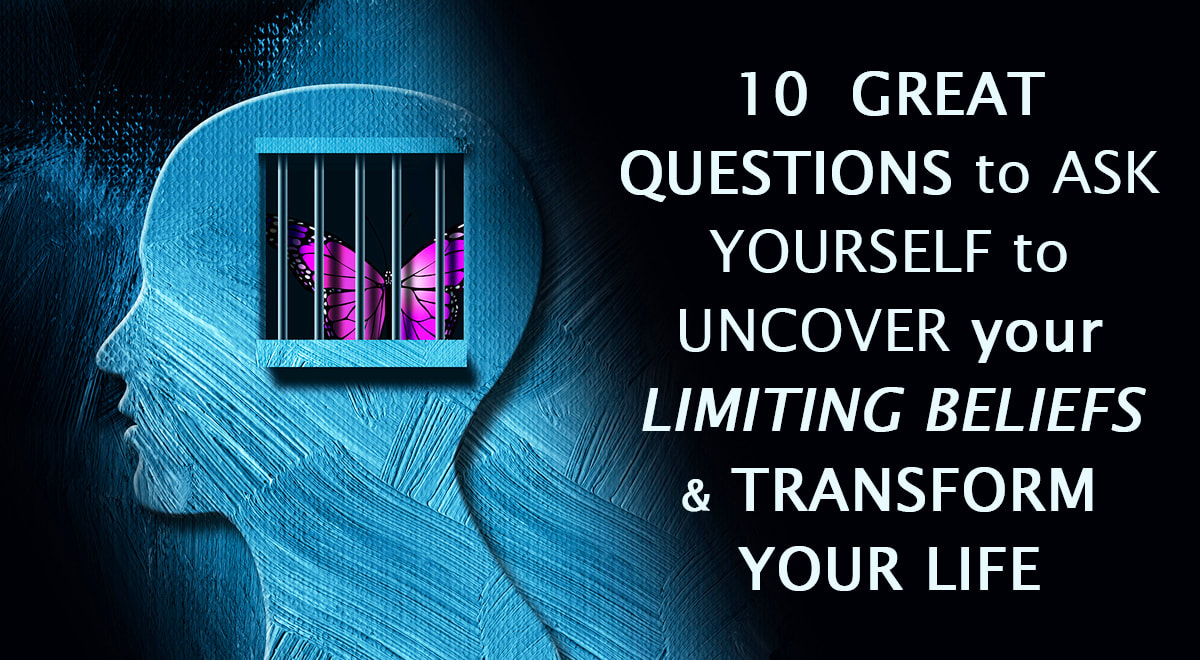
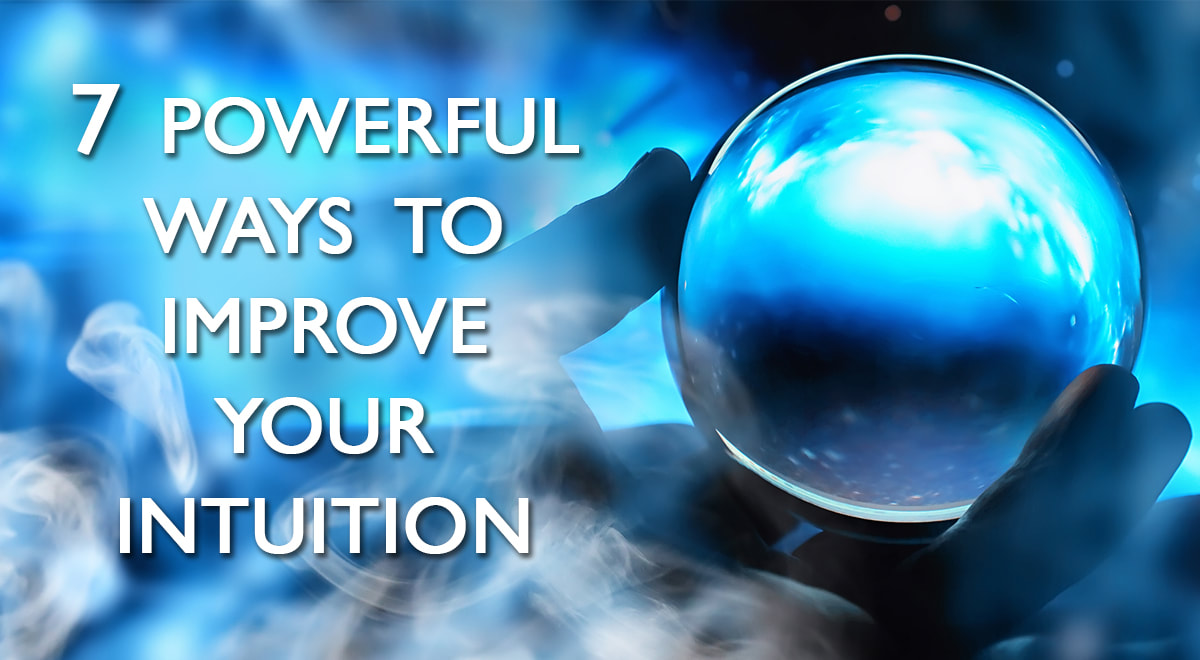
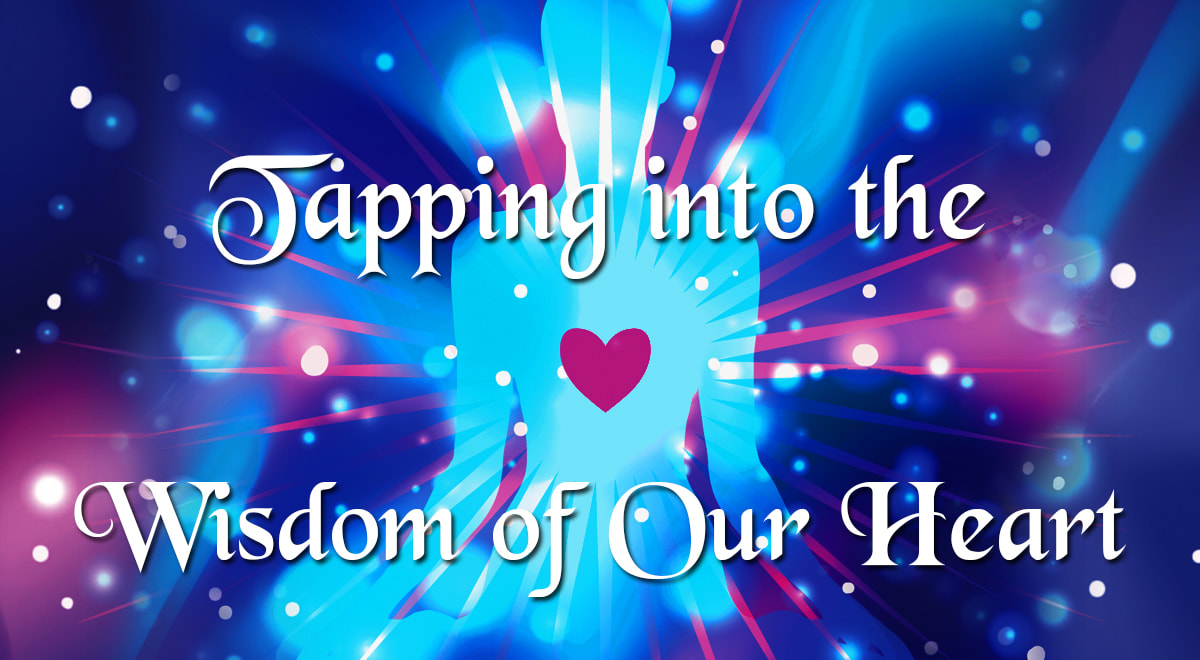
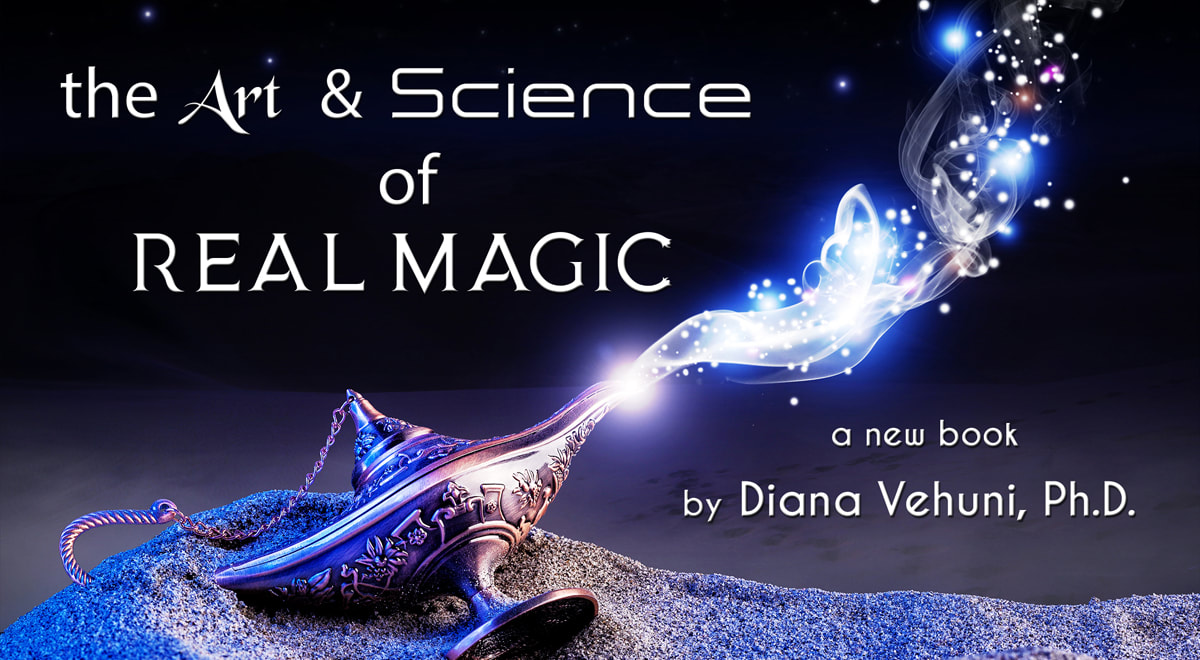
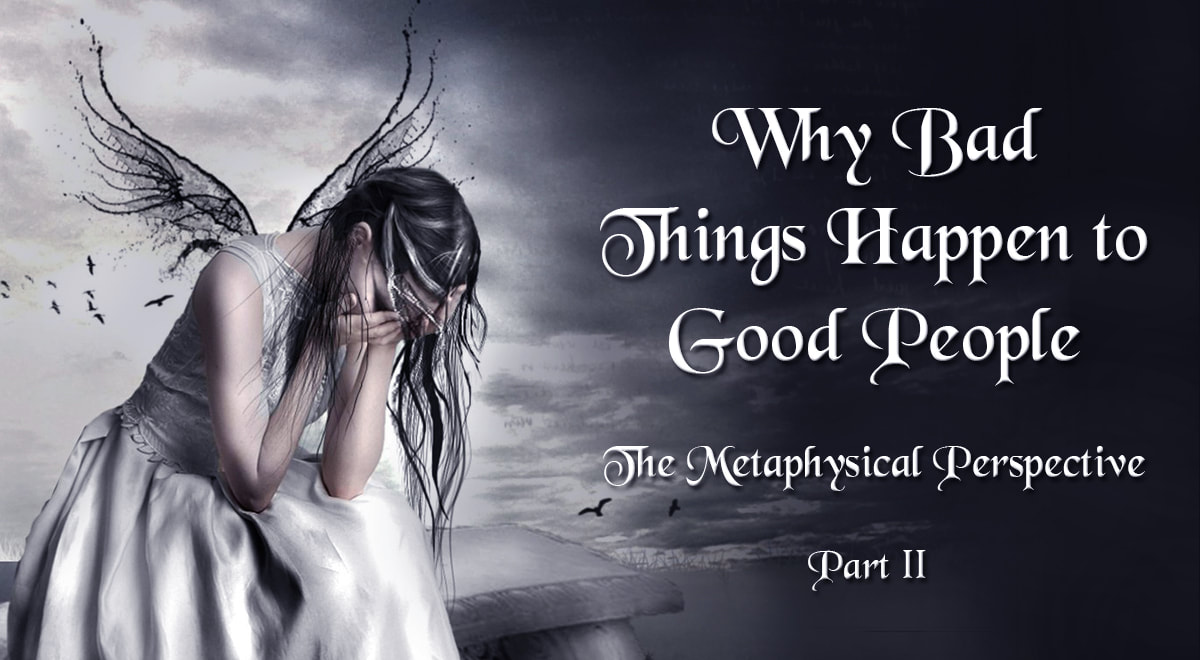
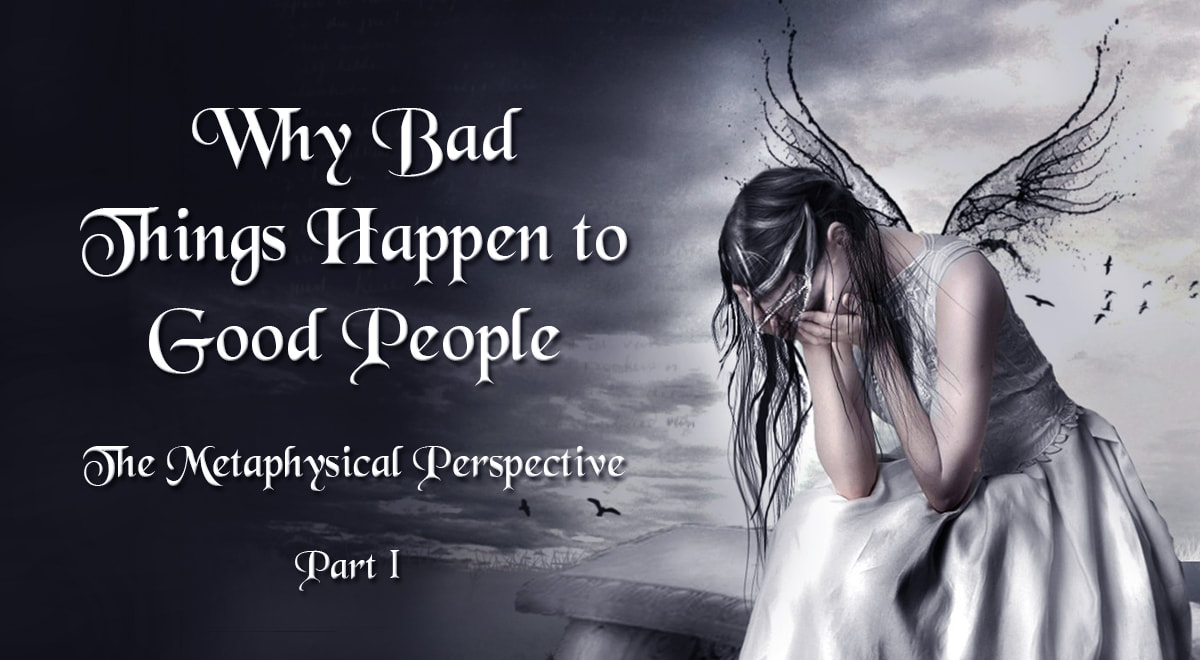
 RSS Feed
RSS Feed
